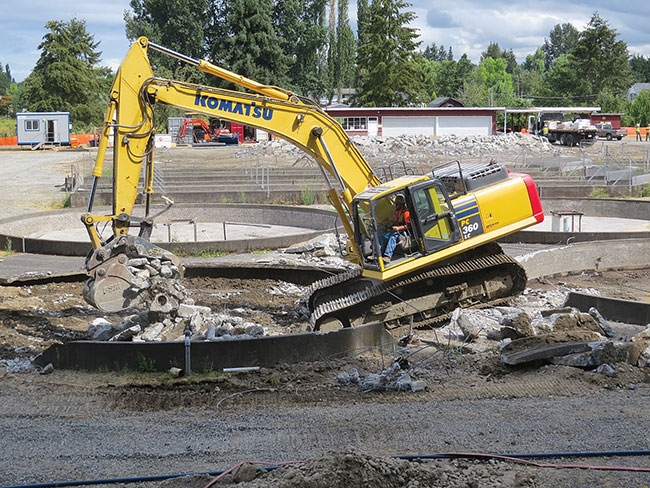
News & Views
Washington hatchery renovations to expand salmon production
After a long planning process, a US$16.4 million renovation project has begun at the Puyallup Fish Hatchery on the Puget Sound in Washington, U.S. The hatchery dates back to 1948 and operations manager Jim Jenkins said the facility will benefit greatly from an update.
November 12, 2018 By Matt Jones
 Renovations at the Puyallup Fish Hatchery in Washington are laying the groundwork for enhancing the hatchery’s operations. (Photos: Puyallup Historical Hatchery Foundation) After a long planning process
Renovations at the Puyallup Fish Hatchery in Washington are laying the groundwork for enhancing the hatchery’s operations. (Photos: Puyallup Historical Hatchery Foundation) After a long planning process“The update includes a new intake, then the delivery system for the water from the intake to the pond, to their incubation room, your rearing ponds and adding a state-of-the-art pollution abatement pond and adult holding pond as well,” sad Jenkins.
With a few exceptions over the years, the hatchery has primarily been a rainbow trout facility. The renovations will allow the hatchery to add significant number of Coho and white river spring Chinook salmon.
“This is one of the only spring Chinook stock in South Puget Sound, and this particular piece of the program is a productive contributor to returning fish to the watershed,” Jenkins said.
With the renovation project, hatchery operations are affected for the immediate future. Some of the production has been moved to the Eels Springs Trout Hatchery and the Minter Creek hatchery. Jenkins is quick to point out, however, that the number of fish raised, programs or planting schedules have not changed – just the rearing location.
In addition to its trout and salmon production, the hatchery also hosts a variety of educational and cultural activities.
“I can’t emphasize enough how many legs are on this stool,” said Jenkins. “Meaning the community, the legislative side of things, the agencies, and most importantly, the Puyallup tribe, all getting together and brainstorming everyone’s specific needs and considerations of others’ needs to develop something that benefits all communities.”
Print this page
Advertisement
- New RAS facility in Norway to produce 3.2 million post-smolts annually
- New land-based salmon producer bares plans to build global RAS facilities







